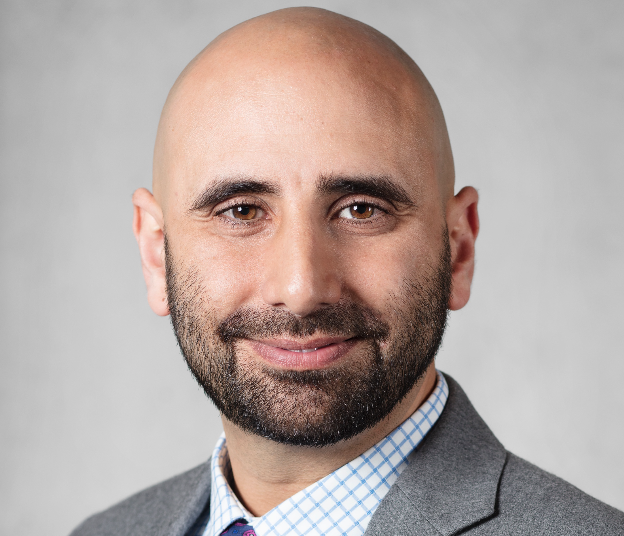Dr. Fatta Nahab graduated from La Sierra University in 1996, with a degree in Biology and with Honors. His senior honors project was titled: “Acoustic Analysis of the Cricket Gryllodes sigillatus.” After medical school, his career in Neurology took him first to Miami, and later to San Diego, where he is currently based. The following interview was conducted by Emily Poon (Class of 2020, Healthcare Management).
EP: Please tell us a few things about your experience as a neurologist, and what inspired you to pursue this career.
FN: I have been a neurologist for approximately 15 years, with additional training in neurological Movement Disorders (e.g. Parkinson’s disease). I knew early on that I wanted a career that focused on the brain due to its complexity and how little we know about its function. The area of Movement Disorders was particularly fascinating to me since few areas of medicine relied as heavily on the individual’s power of observation. I’ve had the privilege of working with leaders in the field who could recognize subtle findings, make a diagnosis, and provide treatment recommendations with no blood tests, imaging or other tests … just their vast knowledge base and experience.
EP: I understand that you have participated in a great deal of research. Can you tell us about a few highlights as well as what research means to you?
FN: Research can be an exciting and intellectually stimulating activity, but designing and carrying out clinical studies on humans has been one of the most rewarding experiences of my life. My research interests have spanned the spectrum from conducting clinical trials to treating a common tremor disorder called Essential Tremor, to developing machine-based measures of disease, to understanding how the perception of free will may be impacted by particular disorders.
EP: Has medicine changed since you first began practicing? If so, how?
FN: The pace of scientific advancement seems to continuously accelerate, making it difficult to stay on top of all the developments in our connected world. Even more exciting is the gradual adoption of new technology into the field of medicine. At the same time, the practice of medicine and the adoption of things like electronic medical records transferred a significant amount of administrative responsibilities on the Physician that were previously performed by others. Despite these challenges, I am quite optimistic about how various technologies will continue to improve the lives of patients.
EP: How would you say research in your field has changed?
FN: Having done the more traditional research we previously discussed, I recently took a leap of faith in joining a technology company focused on improving the lives of patients with Parkinson’s disease (PD). This is a very complex disorder with symptoms that may change within the day and over time. Patients typically see their Neurologist every 3-4 months for a 20-30 minute visit where the expectation is that the patient shares how they are doing, the physician conducts a detailed evaluation, and a management plan is agreed to. It’s like looking at a single frame on TV and knowing what the entire movie was about. Those are the challenges that both patients and physicians face, and technologies that can be worn continuously can for the first time objectively track symptoms and provide data to physicians who can then more optimally manage particular needs. These advancements are the earliest stages of what I believe will be a transformation in medicine.
EP: What was your experience in La Sierra’s Honors Program, and how do you feel it shaped your life?
FN: I have fond memories of my time in the Honors Program. The breadth and depth of unconventional seminars provided me with the background to pursue non-traditional solutions in medicine, but also helped me to better understand our world, develop a deeper empathy for my neighbor, and never failed to show me how little I really knew. The program also connected me to a diverse group of interesting friends beyond the circle of people with a similar major.
EP: What advice can you give to students looking to follow a similar career path to yours?
FN: There doesn’t need to be a path! For those who want to follow a traditional path, we need you. For those who want to make their own path, my advice is to not waste time listening to those who will discourage your goals and dreams as unrealistic. There is one caveat: it’s easy to come up with ideas. The challenge comes in the follow through!

